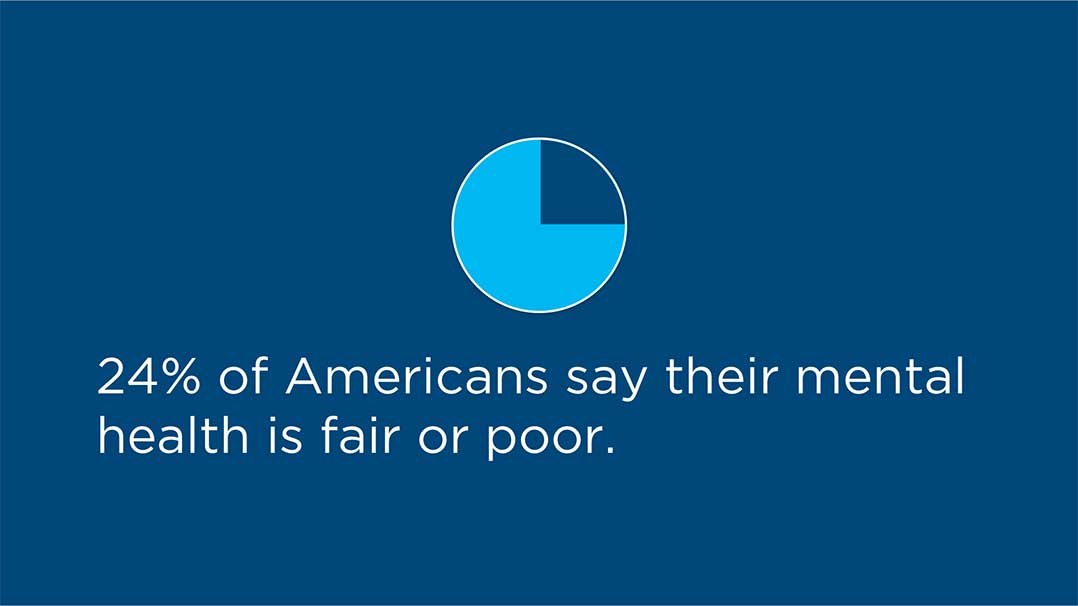Top Tiles
 |
New data from Morning Consult commissioned by Cigna, finds that more than half of U.S. adults (58%) are considered lonely.
 |
Cigna conducted a large national online survey of more than 10,000 U.S. adults to explore the key determinants of loneliness.
 |
Loneliness has an impact on business performance, costing employers an estimated $154 billion annually in stress-related absenteeism alone. Here are five factors that can help mitigate feelings of loneliness among workers.
Gray Box
Alternating Images
 |
Fueling the mental health crisis is the loneliness epidemic.
Some of the causes are:
- A lack of social support and infrequent meaningful social interactions
- Negative feelings about one’s personal relationships
- Poor physical and mental health
- A lack of “balance” in one’s daily activities – doing too much or too little of any given thing (e.g., sleep, work)
 |
Signs of Chronic Loneliness
Chances are, everyone has felt lonely at some point in their lives. However, you might not know if you or a loved-one is suffering from chronic loneliness, as the symptoms and signs can differ for each person.
If you consistently feel some or all of the following, you may be dealing with chronic loneliness:
- Inability to connect with others on a deeper, more intimate level
- Many acquaintances but no “best” or “close” friend
- Feelings that no one “gets” you
- Overwhelming feelings of isolation even if you’re at a party surrounded by dozens of people
- Negative feelings of self-doubt and self-worth
- Feeling exhausted when trying to engage in social activities
 |
Loneliness in the Workplace
- Lonely workers say they are less engaged, less productive, and report lower retention rates1
- They are twice as likely to miss a day of work due to illness and five times more likely to miss work due to stress1
- 12 percent of lonely workers say they believe their work is lower quality than it should be1
- Lonely workers say they think about quitting their job more than twice as often as non-lonely workers1
- Remote workers are more likely than non-remote workers to always or sometimes feel alone1
Read about loneliness and its impact on the American workplace [PDF]
 |
Loneliness Resources for Health Care Providers
Our behavioral health resources and tools can help Health Care Providers better support patients in the body and mind connection.
Did you know
Bottom Single Row
Bottom Two Columns
Take the Original Loneliness Questionnaire
View the 2018 Cigna U.S. Loneliness Index Infographic [PDF]
View the 2018 Loneliness Survey Findings Fact Sheet [PDF]
View the 2018 Loneliness Full Survey Report [PDF]
Research: Loneliness Influences Avoidable Absenteeism and Turnover
Research: Loneliness in the United States: A 2018 National Panel Survey
Are you a member of the media interested in more information about Cigna's work on loneliness?
